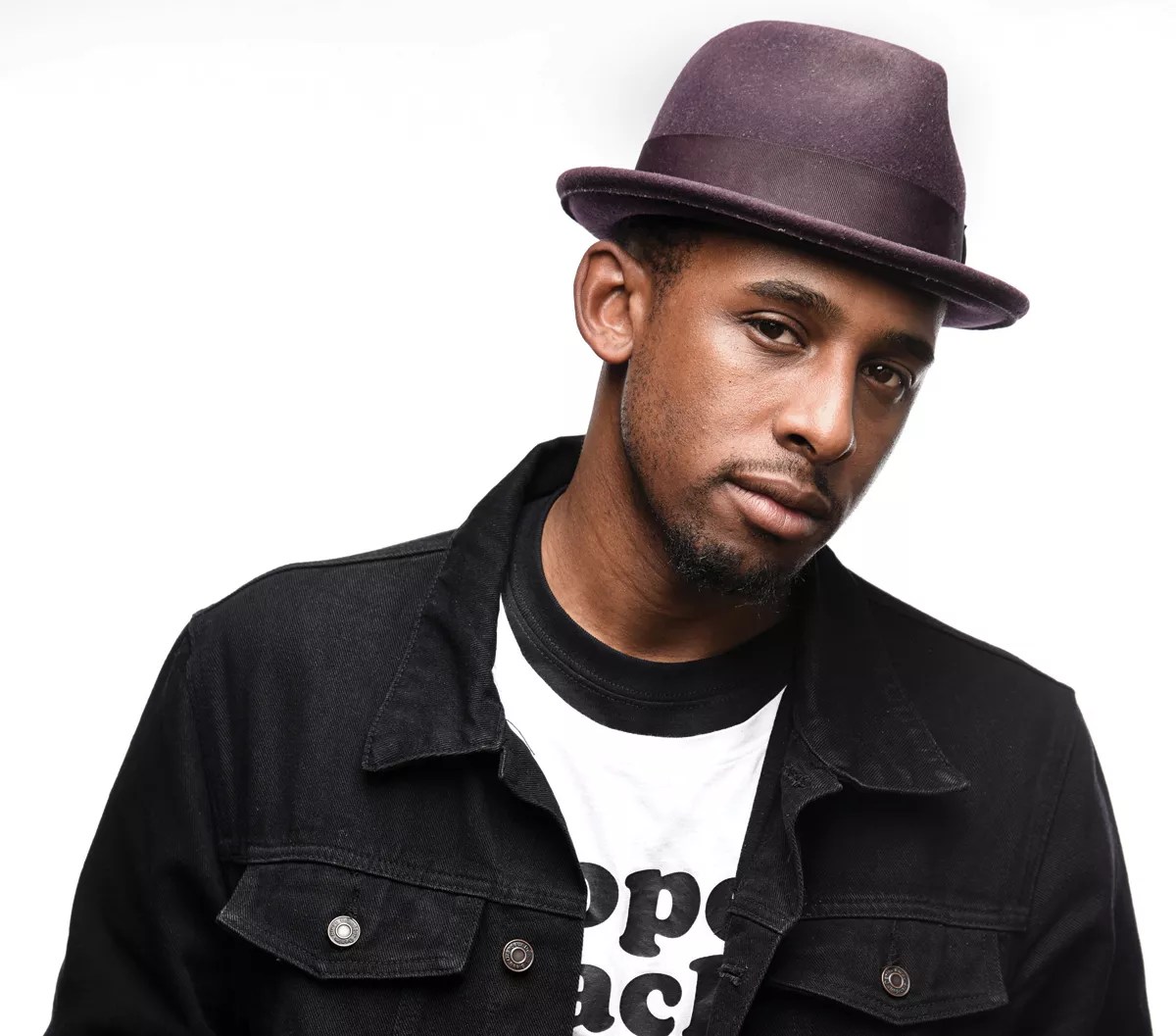
Anthony Camera

Audio By Carbonatix
In a room at a local high school, Michael Acuña leads a group of students and Denver police in breathing exercises. No doubt the students and the cops find the whole thing hokey – but the participants in this workshop have no clue just how corny things will get.
Once everybody has breathed in and out a few times, the lanky rapper busts out a spoken-word poem, a deeply personal monologue delivered in front of what may be two of the most guarded, judgmental and often diametrically opposed groups: law enforcement and youth.
The poem is about Nina Simone: “I can feel her in the spirit/Yeah, I hear her in the beat/She’s the conscious of the soul that make the weirdo feel unique/She the vibe that make the mind connect the chakras to the soul/Translation of the spirit that gets trapped up in the flow.”

Acu
Courtesy of Ill Se7en
Eyes roll. Participants chatter and snicker. For a less confident artist, performing that poem to a roomful of skeptics could be downright humiliating. But Acuña forges on, hoping that he’s primed audience members to bare their souls a little, too.
Acuña, the recipient of a 2018 Westword MasterMind award, is modeling the kind of vulnerability he expects from his participants in these implicit-bias workshops, which he leads for the Office of the Independent Monitor, the civilian oversight agency of the Denver police and sheriff departments. After breaking the ice with his poetry, Acuña moderates a conversation between officers and students that encourages them to share their life experiences and their assumptions about each other. The goal is to break down boundaries, to connect the people in the room using their shared humanity, and to move them to see beyond their differences.
These gatherings take place at high schools, substance-abuse treatment centers and community spaces, and are held with students ages fourteen to seventeen. A similar program is held for young adults. Law enforcement officers are given the opportunity to participate, though not all of them sign up willingly.
“The officers who are going to it are like, ‘What is this going to be? These kids are just going to bash us and get mad at us and argue with us.’ They don’t know what to expect,” Acuña says.
The youth have a lot on their minds, too. They want to talk about what it’s like to be treated like criminals rather than humans. Some have seen officers beat or harass their family members. Some see cops as gangbangers flying a different flag.
The kids are open to having a conversation with the police, Acuña says: “The kids are able to…not necessarily let their guards down around officers, but they are very much able to say, this [officer] is an individual person. For the officers who end up attending the forum, they have to realize that these kids are people. They have emotions, and they’re not done developing.”
Acuña gives young people a chance to walk out of the workshops if they become too frightened to be in a room with police – and some are. On the other hand, police officers who commit to a workshop are asked to stick it out, no matter how difficult it might be for them.
Michael Acuña, aka Acuña Black, aka Ill Se7en, is an activist, a poet, an underground-hip-hop artist, an educator and a curator. He’s a performance artist who finds his stage in classrooms and meetings with community members and city brass. Civic engagement has become Acuña’s art, and the relationship between race, culture and power is an obsession.
In his music and his general outlook on life, he follows in the footsteps of James Baldwin and Spike Lee. Taking cues from their work, he uses poetry and activism to explore black culture, which, as he tells it, is hardly a monolithic thing. His family history proves it.
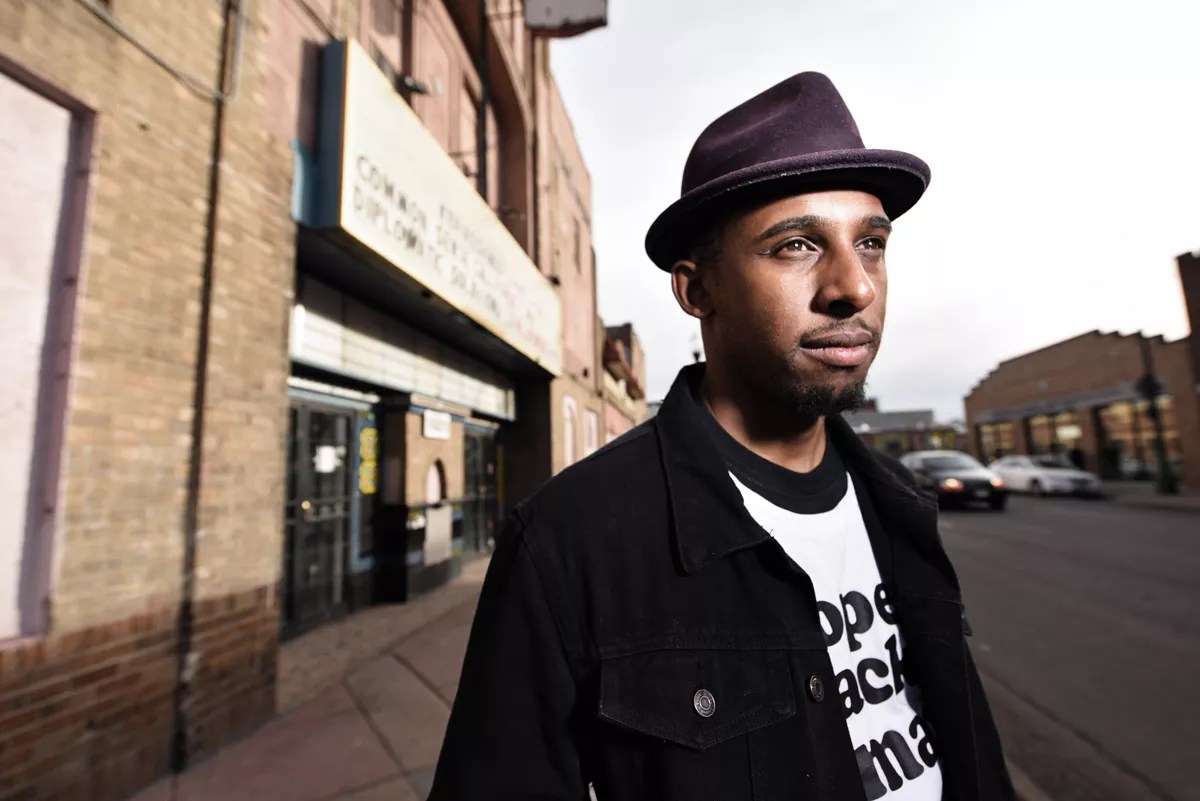
Michael Acu
Anthony Camera
In 2016, Acuña and his oldest daughter were participating in an ancestry project called “They Still Live.”
“I did a DNA test and found all kinds of connections into my indigenous culture, being from Africa,” Acuña says. “I had Irish in me. I had Jewish in me. I had a little Arabic in me. I found all these cool things, mixtures of who I was. I was already working on a project connecting to lineage and heritage and history, but that gave me more of a map of who I was within my lineage.”
After Acuña’s maternal grandmother died, his mother told him that her mother had been Jewish and had fled the Nazis, then converted to Catholicism and moved to Mexico. While there, she married an indigenous man. “I am not Mexican; I am Aztecan,” Acuña’s grandfather would say. But that man was not Acuña’s biological grandfather; his grandmother had an affair with a black man.
Acuña, whose biological father came from Haiti by way of Cuba, has the darkest skin among his brothers, he says. That fact inspired him to create one of the monikers he now works under: Acuña Black.
He was further motivated by an artist’s retreat in France during an eye-opening pilgrimage to Europe.
“I traveled outside of the country as a kid, to Mexico and the Bahamas, and I’ve been to Trinidad and Canada, but I’d never been to Europe,” Acuña says. “I think Europe is an important narrative for Americans to have; a lot of our lineage and our roots start there. I think that was an important trip for me because it has so many narratives there. It has the European narratives. It has the African narrative. There’s the Arabic and all these other cultures that reside in Europe. I feel like because Europe is such an old culture and something we’re connected to in America, in a variety of different ways, that it’s important for us to figure out that narrative for ourselves and learn who we are in it.”
Acuña was born in Las Vegas in 1981. A few years later, his mother and father divorced, and his mother eventually married his stepfather, who was in the Air Force. When Acuña was around seven, they moved to Limestone, Maine, onto the Loring Air Force Base.
“Around that time, there wasn’t a lot of people of color that lived in Maine, and the people of color that did live in Maine were mostly…Native Americans,” he recalls. “Being a military family, we were one of the first black families that lived in Limestone. It was really alienating for everybody – for us as a family, and probably for the community that we were living in at the time. It exposed me to a lot of different ways of viewing life…dealing with being a minority at a young age.”
From the beginning, he struggled in school. One teacher wrote his parents a letter saying that she didn’t think Acuña was able to retain knowledge. Furious, his stepdad and mom arranged a meeting between the principal and the teacher, which prompted an investigation into the teacher.
The school discovered that she had mistreated several of her students, and she was fired. But the damage was done for Acuña.
“Because of that, I had weird interactions from that point on in school – the whole way I saw teachers, the ways I engaged,” he says.
Five years after moving to Maine, the family relocated again, first to San Antonio, Texas, and then to the city of North Las Vegas, which Acuña calls the “rougher side” of Vegas. He attended a school with mostly black students.
“That was another culture shock for me,” he says. “It was a public school. Most of the kids I was going to school with at that point in Las Vegas, they were going through some struggles.”
It was the early ’90s, and drugs and gang violence ran rampant. “You would hear kids talk about drive-bys pretty regularly, even in elementary school,” Acuña remembers. “Right around that time, I lost a friend. His name was Orlando. I was probably, at that point, like ten or eleven. He was playing in front of his house, and he got caught in the crossfire.”
Acuña’s home life was largely positive. His stepfather was a jazz head and played music constantly. He left books by Langston Hughes and Octavia Butler on the coffee table for Acuña and his siblings to read. He had high expectations for his kids and pushed them to excel in school. But Acuña’s attention was elsewhere.
“I started getting exposed to early hip-hop, early-’90s hip-hop,” he recalls. “And I really adapted to it – just the messages and stories that were told. A Tribe Called Quest was a big influence on me, mostly because my dad listened to jazz, and I heard a lot of jazz influence in A Tribe Called Quest.”
Between the music and his troubling experiences at school, he began to think about the environment he lived in and how it related to race.
“I was living in rural Maine and was exposed to a very white environment,” he says. “Then I was living in a very black environment that really had my mind thinking: What was color, for one, and what was I within that?”
His parents began to squabble, and he moved to California to live with his grandparents while they worked out their relationship troubles. The family eventually reunited, and they moved to Denver in 1992.
“When we first moved here, we didn’t know the terrain and the layout, so we lived in the Montbello area,” he says. “I ended up going to Montbello High School my freshman year. There was a lot going on during that time: fights, gang violence. My dad wanted to get us out of that environment, so we ended up moving north, to the Westminster-Northglenn area.”
His stepfather, who had retired from the military, worked as a guard for Wackenhut Security at the site of the former Rocky Flats Nuclear Weapons Plant.
Acuña attended Northglenn High School and soon learned about a place in Denver called the Spot, where young people were schooled in hip-hop, emceeing, deejaying and beat production.
“It was a youth hub where everybody could cultivate ideas,” Acuña recalls. Through the Spot, he connected with now-famous artists in Denver like Ietef Cavem Moetavation, Mike Wird and the graffiti artist Jolt – all of whom have maintained a rigorous creative practice. (Jolt is curating Westword‘s Artopia event on February 23.)
At sixteen, Acuña started collaborating with musicians. Drawing on his Pentecostal background, he formed New Clay, a Christian hip-hop band that was signed to a Christian record label. That short-lived project floundered, and the musicians went on to form a secular underground hip-hop act that released three albums.
When he was around eighteen, Acuña discovered spoken-word poetry through Brother Jeff’s Cultural Center in Five Points and eventually connected with Ashara Ekundayo, the founder of Cafe Nuba, a spoken-word poetry series. Through Brother Jeff and Ekundayo, Acuña learned about spirituality and religion beyond Christianity and connected with even more members of Denver’s rising spoken-word scene.
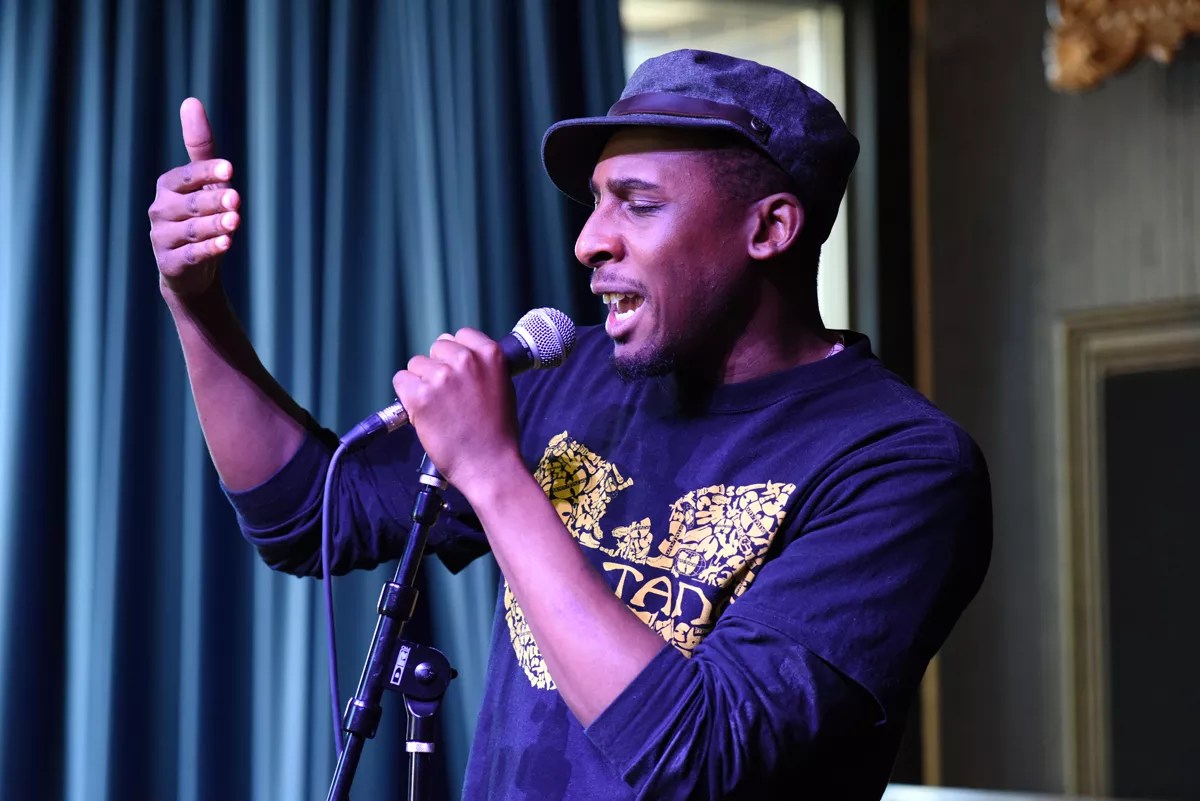
Acu
Anthony Camera
He also began to find himself in trouble with the law and spending time behind bars for relatively minor offenses, like not paying traffic tickets.
“Some of that kind of carried over into adulthood,” he says. After graduating high school, “I ended up having an incident where I was at a friend’s house, and while I was at this friend’s house, he had been selling drugs. He ended up getting investigated by the Denver Police Department, and they did a raid at his house, and I ended up getting arrested with him. I didn’t have anything on me – I didn’t have any drugs. I wasn’t under the influence or anything like that. But they kept me in holding.”
He stayed in jail for four months before a fellow inmate put him in touch with his lawyer, who got Acuña out within 48 hours.
Shaken by these experiences and wanting a steady job, he set out to earn an associate’s degree in business at what is now Metropolitan State University of Denver. In the following years, he worked in a warehouse, became a branch manager of a bank, and eventually become an account manager at a law firm that specialized in debt collection. The Great Recession was in full swing, and there were plenty of people to exploit.
Acuña would cold-call people who were on the brink of foreclosure and convince them to sell their homes to the attorney’s office. It was financially lucrative but taxing on his soul; he felt like he was taking advantage of people to make a profit.
All the while, he continued to rap, immersed in the underground social-justice hip-hop scene, which had little patience for capitalist greed. That only made his day job harder to stomach.
“It’s easy to do that style of job if you’re just focused on the numbers,” he says. “It’s hard to do that style of job if you’re focused on ‘That’s a real person being impacted by this situation, and their families are being impacted by the situation.'”
To make his moral dilemma worse, he started thinking about the future of his first daughter, who was born in 2008: “I wondered: Do I want her to live in this style of world? And do I want to bring her up in these ways?”
So he quit and became a full-time musician, artist, educator and activist. “Financially, I’ve taken a big hit within that, but I’m happy,” he says. “I love what I do, and I’m figuring it out for myself.”
He started working with youth around 2011 through Art From Ashes, an arts-education nonprofit, and developed curriculum for Divine America, which took him into schools to explore with students how history impacts culture. He collaborated with youth on art projects, poems and songs.
Meanwhile, Acuña was playing shows with Jonny 5 and Stephen Brackett, the hip-hop duo behind the Flobots, and collaborating with their activist arm, Fight With Tools, which later became Youth on Record. “I was engaged in protests and marches,” says Acuña.
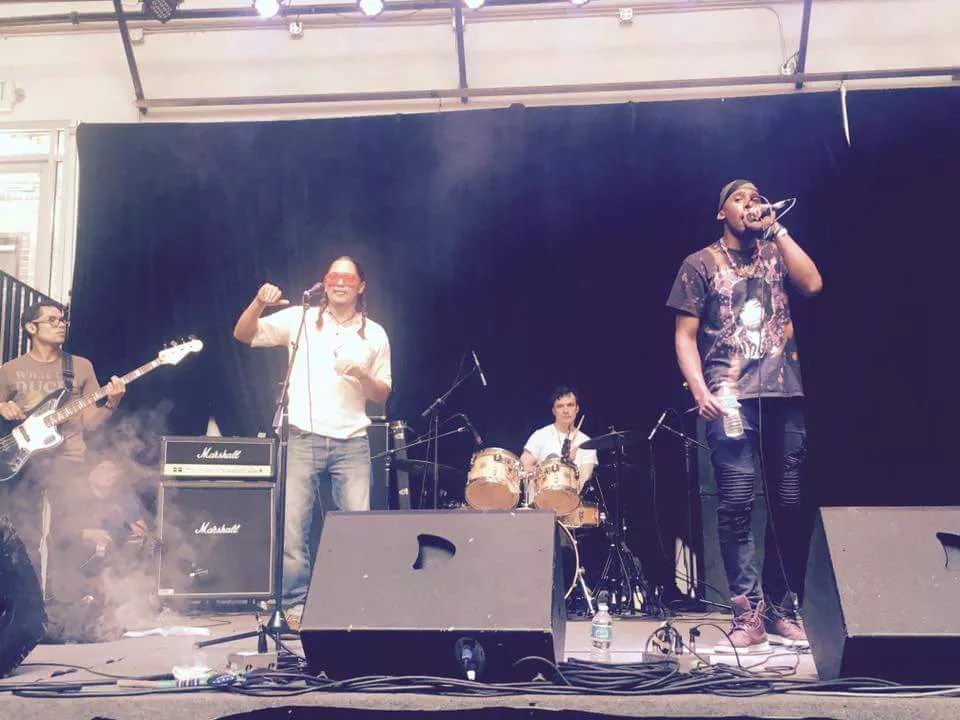
Acu
Courtesy of Ill Se7en
He started conducting workshops with Youth on Record and honed his chops as an arts educator, eventually striking out on his own. He left Art From Ashes in 2015 and two years later created a program called Tribal Zypher, which he still operates in addition to his workshops with the Office of the Independent Monitor. Through Zypher, he contracts with high schools to lead workshops using African archetypes like the griot, a traditional storyteller, to build students into healthy leaders, entrepreneurs and advocates for social justice.
In Acuña’s last months at Art From Ashes, he worked with a young student named Jessica Hernandez. He helped her with her poems, and the two formed a deep connection.
In 2015, Hernandez was sitting in a car in an alley in the Park Hill neighborhood with her girlfriend and other friends. Neighbors called the police, who showed up and demanded that the youth get out of the car.
Hernandez, who was behind the wheel, pulled away, and officers fired into the car, killing her.
When Acuña heard about Hernandez’s death, the story leading up to it made him think of the time he had been needlessly incarcerated for months. He thought of his friends who had been assaulted by officers and black men like Michael Brown in Ferguson and Eric Garner in New York – men he didn’t know personally, but related to. He began organizing with racial-justice groups, like the Denver Freedom Riders (which later became Black Lives Matter 5280) and the Movement for Black Lives.
“I talked to a gentleman named Joey Pace. I told him, ‘Yo, is there anybody developing out conversations in the community? Is there anyone engaging with the trauma the community is having around these shootings and building out some type of conversation piece with officers?'” Acuña recalls.
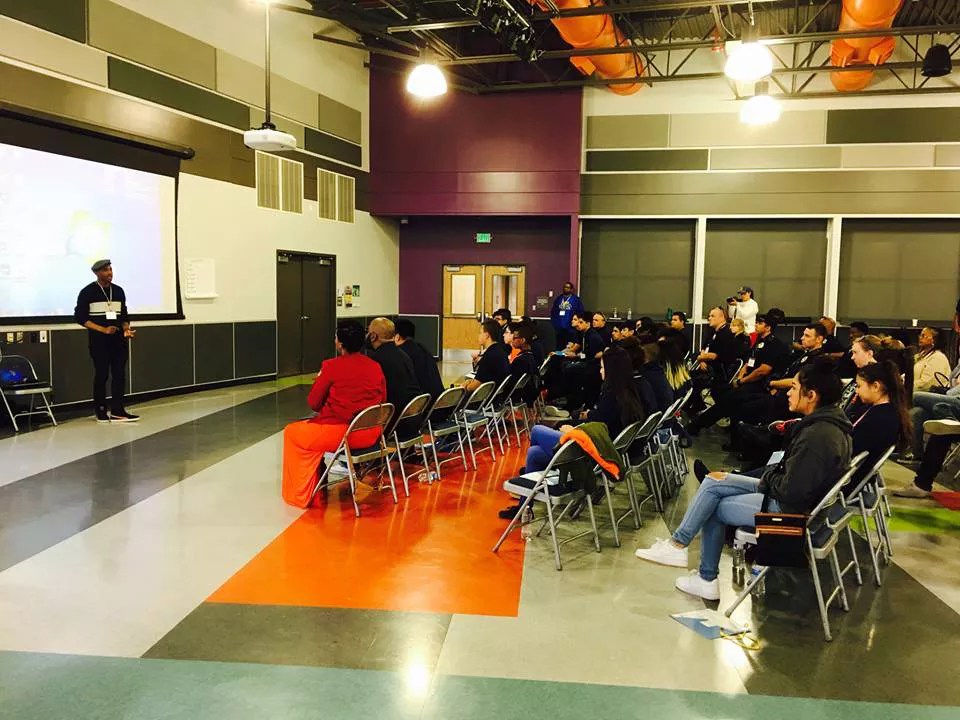
Acu
Courtesy of Ill Se7en
Pace, who works with the city’s Office of Children’s Affairs, recruited Acuña to be a part of the My Brother’s Keeper Initiative, a mentorship program for youth formed by President Barack Obama. Through that work, Acuña connected with the Office of the Independent Monitor and began leading the implicit-bias workshops for law enforcement.
Acuña is cautiously optimistic about whether his work is making a difference. But he’s confident that it’s more useful than lobbying for policy change.
He acknowledges the positive impacts of changing laws but says that only goes so far in altering how police engage with youth on the streets.
“You can change the policy, but that doesn’t mean you’re gonna change the people,” Acuña says. “I think it’s still important to engage with people past policy.”
Acuña has maintained his music career, steadily releasing albums including School Daze in 2009 and Thoughts From a Cinematic Mind in 2015. In April, he’ll release Acuña Black: Crates of Vintage Dreams. He’s rapped on his peers’ projects and collaborated with multimedia artists, exhibiting his work at RedLine and other galleries. He also hosts the podcast Boom Bap Tricks.
He’s collaborating with photographers and videographers on a project that’s also called Crates of Vintage Dreams and explores the complex cultural histories of Denver and draws attention to neighborhoods that are gentrifying.
In a video about Five Points called “Ill Se7en aka Acuña Black Time Traveler,” he chronicles the history of jazz and the neighborhood’s reputation as the Harlem of the West, juxtaposing those stories and the haunting trumpet playing of J.Fuziion with images of new condos popping up around the neighborhood.
“I’m from Vegas originally,” Acuña says. “In Vegas, they blow up buildings when they’re done with them and build another building right on top of that. So the history in Vegas is always changing. I feel like Denver is definitely becoming one of those cities. We’re becoming Vegas-like.
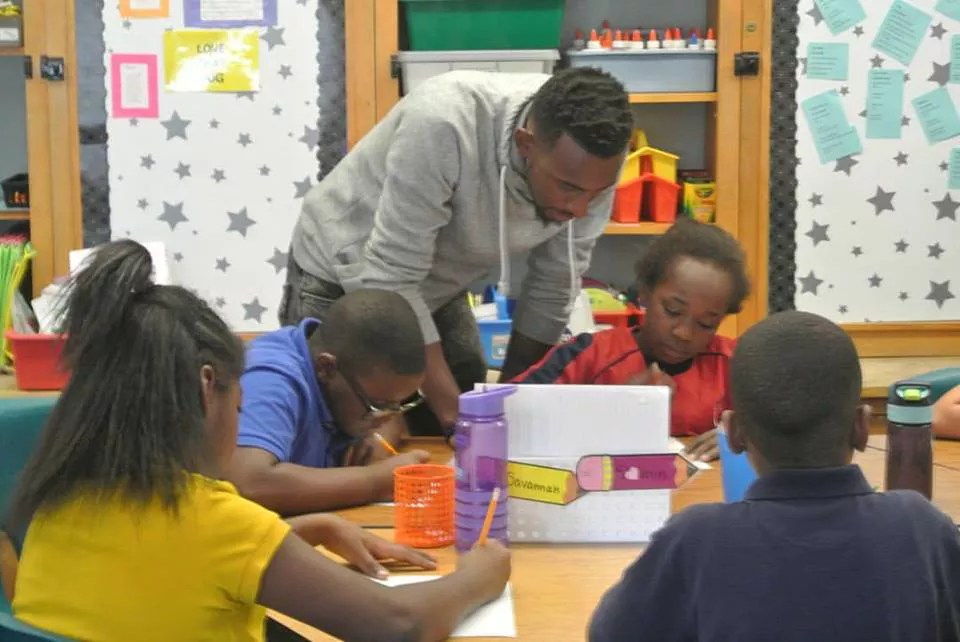
Michael Acu
Courtesy of Ill Se7en
“We’re tearing down important history to the communities and the tribes that resided there,” he continues. “I wanted to really ask that question: Why is this happening? Why aren’t we trying to save that? Why isn’t this important to everybody? … It’s everybody’s history. It’s not just black history. It’s history.”
The change, as Acuña tells it, isn’t all bad.
“I remember being in Denver before it had the boom – the big boom of where we’re at. I remember having conversations with people who were talking about, ‘Man, I wish Denver was more like L.A.,’ or ‘Man, I wish Denver was more like New York.’ That was early on in the 2000s. ‘It’s a cowtown’ and all those types of things,” he says. “They weren’t wrong at all…but now we have this multicultural metropolis happening, and now it’s very much becoming L.A. and New York, but [has] its own identity within that. You can’t stop this, so you have to embrace it. That’s evolution, right? That’s change. That’s transformation. As much as I loathe it, I’m also really appreciative of a lot of the change, too. It’s hard if you’re not willing to adjust with it and you’re not willing to grow with it. I think that’s where I also want to make art that captures the history of it.”
As a rapper, poet, artist, activist and educator, he is chronicling the city’s past – but also actively changing its future and engaging Denver with music and art over the tough issues of the day.
“I create art because somebody may not necessarily listen to the things that I say, but they will listen to a song if they like it,” Acuña says. “Even if the message in that song is hard, they’ll still listen to it. I think that’s one thing about art. Whether it be Banksy or Kendrick Lamar, that art is going to make you engage with the message, whether you agree with it or not. I think that’s what art does at its best: It brings up the questions for individuals to have to contemplate themselves.”